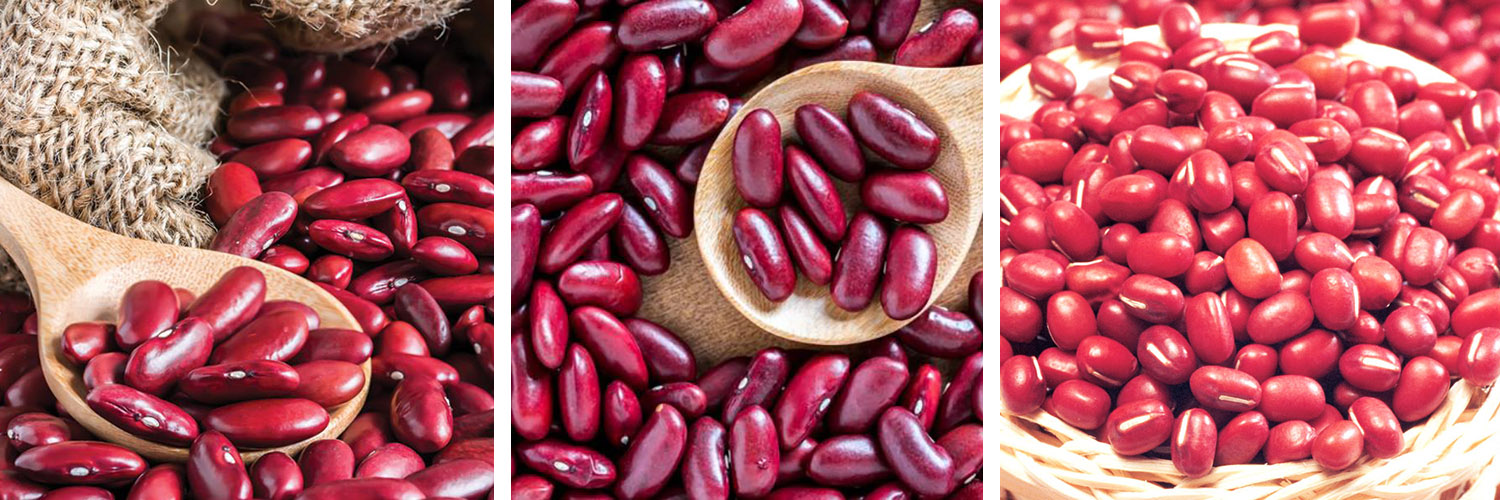Kidney Bean
Kidney beans are one of the many varieties of common beans. These common beans, scientifically known as 'Phaseolus vulgaris', are annual plants that are cultivated throughout the world for their edible beans. Red kidney beans are red in color and have a shape quite similar to that of a human kidney. The kidney beans are also known as 'Rajma' in Hindi and are a popular form of cuisine in India, particularly in the northern region. Their ability to absorb the flavors of the seasoning used in food make it them ideal for cooking simmered dishes.

Kidney beans, like other beans and legumes, are rich in both types of dietary fiber -- soluble and insoluble. A 1-cup serving of kidney beans, cooked, meets roughly 45 percent of the Recommended Daily Intake for fiber. Both forms of fiber offer health benefits. In the digestive tract, soluble fiber forms a gel-like substance that binds with cholesterol-containing bile and carries it out of the body. Insoluble fiber, on the other hand, helps to prevent constipation and improves laxation by increasing stool bulk. Insoluble fiber may also help to prevent common digestive disorders such as diverticulosis and irritable bowel syndrome.
Health Benefits:
Fiber-rich diets help promote healthy cholesterol levels and lower cholesterol. White kidney beans are also rich in a B vitamin known as folate. In fact, a 1-cup serving of cooked white kidney beans meets over half of the Recommended Daily Value, or DV, for this nutrient. Folate helps lower levels of homocysteine. Homocysteine is an amino acid that acts as a toxin in the bloodstream. In fact, elevated levels of this amino acid in the bloodstream is an independent risk factor for stroke and heart attack. According to a meta-analysis published in the "Journal of the American Medical Association" in October 2002, if all Americans consumed folate-rich diets, or those that met 100 percent of the DV for this nutrient, it would reduce the number of heart attacks by 10 to 11 percent each year due to the reduction in circulating homocysteine.
In addition to offering benefits for the digestive and cardiovascular systems, the soluble fiber found in white kidney beans helps stabilize blood sugar levels. According to an article published in "Current Diabetes Reports" in October 2009, randomized, controlled research studies have shown that viscous soluble fiber offers both immediate and long-term metabolic improvements in individuals with type 2 diabetes. Some of these benefits include reducing hemoglobin A1c levels and insulin levels, improving fasting and post-meal glucose readings, and aiding in weight control by promoting feelings of fullness.
